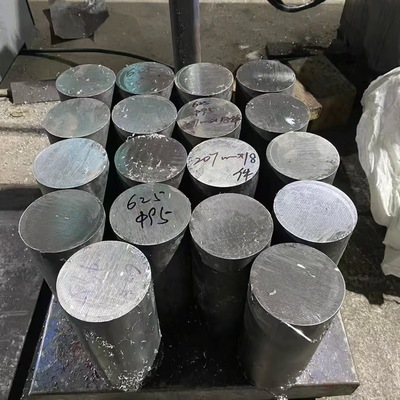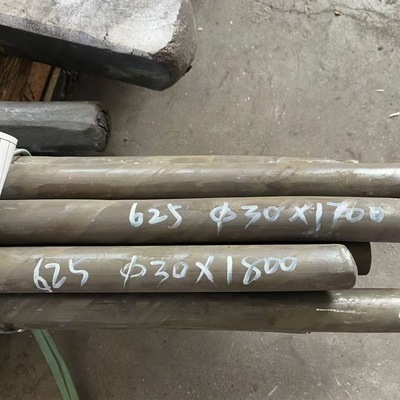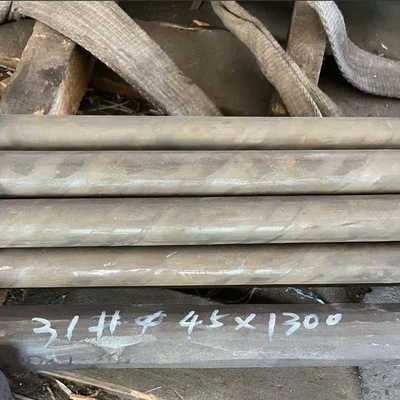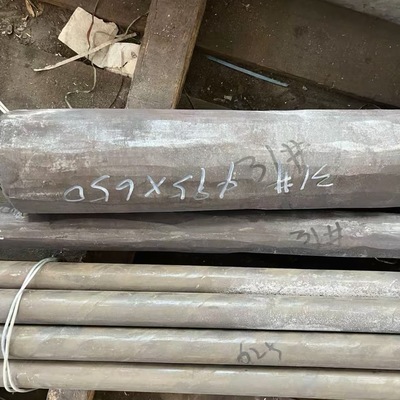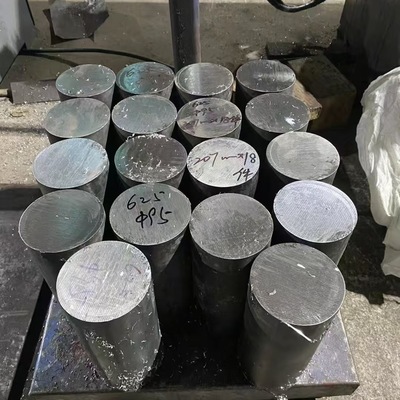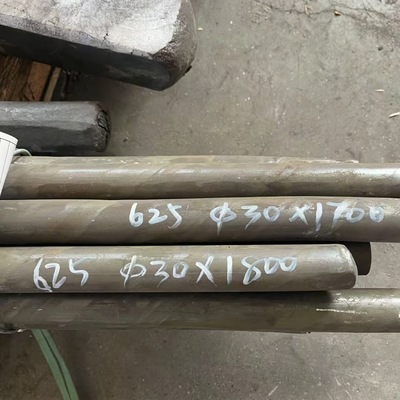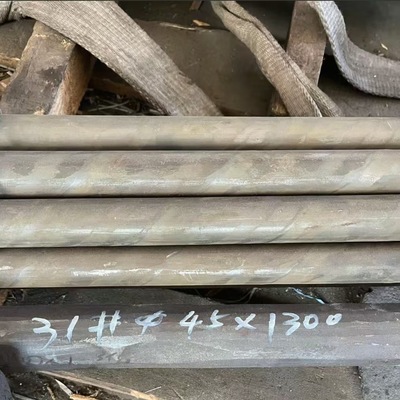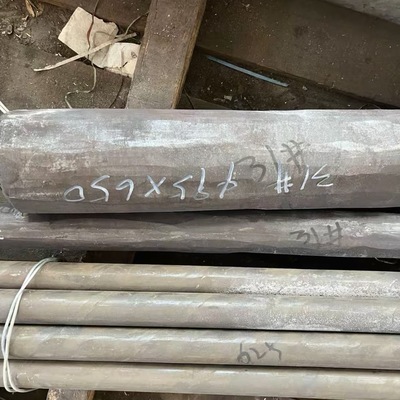Все продукты
-
Прокладка нержавеющей стали
-
Лист нержавеющей стали
-
Плита нержавеющей стали
-
труба нержавеющей стали
-
Адвокатура нержавеющей стали
-
Гальванизированная стальная катушка
-
Стальная пластина
-
стальной круглый бар
-
сплав никеля
-
Безшовная стальная труба
-
Луч нержавеющей стали
-
Лист медной плиты
-
Медная круглая Адвокатура
-
 Raian IonescuМатериальное качество очень хорошее. мы имеем объединить больше чем 10 лет. Они торгуют видами серий стального материала. Полностью материальное качество хорошее. Они обязанность для полностью материального качества. Мы строгаем для того чтобы продолжать объединить с ними в будущем
Raian IonescuМатериальное качество очень хорошее. мы имеем объединить больше чем 10 лет. Они торгуют видами серий стального материала. Полностью материальное качество хорошее. Они обязанность для полностью материального качества. Мы строгаем для того чтобы продолжать объединить с ними в будущем
Durable Inconel 625 Nickel Alloy Round Bars for High-Temperature Environments
| Место происхождения | КИТАЙ |
|---|---|
| Фирменное наименование | DELTA |
| Сертификация | ISO |
| Номер модели | Инконел 625 |
| Количество мин заказа | 10 кг |
| Цена | 20 - 35 USD/Kg |
| Упаковывая детали | стандартная упаковка для экспорта |
| Время доставки | 5 - 12 дней на основе количества |
| Условия оплаты | L/C, T/T, Western Union |
| Поставка способности | 3 тонны в неделю |
Подробная информация о продукте
| Продукция | Адвокатура Inconel 625 круглая | Оценка | Инконел 625 |
|---|---|---|---|
| Диаметр | 10 - 350mm | Длина | настройка резки любой длины по запросу |
| Стандартный | Astm en | Услуга | Резка |
| Загрузочный порт | Шанхайский порт | Поверхность | Черный, Яркий |
| Выделить | Inconel 625 nickel alloy round bars,high-temperature nickel alloy bars,durable Inconel 625 round bars |
||
Характер продукции
Products Specification
|
Standard
|
AISI, ASTM, BS, DIN, GB, JIS
|
||
|
Grade
|
Monel series: 400 K500
Inconel series: 600 601 625 718 725 Incoloy series: 800 800H 825 925 Hastelloy series: B,B2,B3,C,C-276,C-4,C-22 Pure: Ni200, Ni201 |
||
|
Specifications
|
Round bar
|
Diameter:4~300mm
|
|
|
Flat bar
|
Thickness
|
1.0~100mm
|
|
|
Width
|
1~1500mm
|
||
|
Square bar
|
Size: 4*4-100*100mm
|
||
|
Length
|
2m, 5.8m, 6m, or as required.
|
||
|
Surface
|
Black, peeled, polishing, bright, sand blast, hair line, etc.
|
||
|
Price Term
|
Ex-work, FOB, CFR, CIF, etc.
|
||
|
Delivery Time
|
Standard size is in stock,prompt delivery or as order's quantity.
|
||
|
Package
|
Export standard package, bundled or be required.
The inner size of container is below: 20ft GP: 5.9m(length) x 2.13m(width) x 2.18m(high)about 24-26CBM 40ft GP: 11.8m(length) x 2.13m(width) x 2.18m(high) about 54CBM 40ft HG: 11.8m(length) x 2.13m(width) x 2.72m(high) about 68CBM |
||
1. Introduction
In the realm of modern industrial materials, the demand for substances that can withstand extreme conditions is ever - increasing. Among these materials, Inconel 625 nickel alloy round bars have emerged as a top - tier choice, especially when it comes to high - temperature environments.
High - temperature environments are prevalent in various industries, such as aerospace, power generation, and petrochemicals. In aerospace, engines operate at extremely high temperatures, where components need to maintain their structural integrity to ensure the safety and efficiency of flights. In power generation plants, turbines and boilers are subjected to intense heat during the energy - production process. Similarly, in petrochemical refineries, reactions often occur at high temperatures, and the equipment must endure such harsh conditions without failure.
Inconel 625 nickel alloy round bars offer several distinct advantages in these high - temperature settings. Firstly, they possess outstanding high - temperature strength. This means that even at elevated temperatures, the alloy can maintain its mechanical properties, such as tensile strength and yield strength. For example, while many traditional materials may become soft and lose their load - bearing capacity at high temperatures, Inconel 625 can continue to perform reliably, ensuring the smooth operation of machinery and equipment.
Secondly, Inconel 625 has excellent corrosion resistance. In high - temperature environments, materials are often exposed to corrosive gases, liquids, or a combination of both. Inconel 625's chemical composition allows it to form a stable and protective oxide layer on its surface, which effectively prevents further corrosion. This is crucial in industries like petrochemicals, where corrosive substances are commonly present.
Moreover, the alloy has good creep resistance. Creep is the tendency of a material to deform slowly under a constant load at high temperatures over time. Inconel 625's ability to resist creep ensures that components made from it have a long service life, reducing the need for frequent replacements and thus saving costs in the long run. Given these remarkable properties, Inconel 625 nickel alloy round bars play a vital role in high - temperature applications, and a detailed understanding of its characteristics is essential for engineers and industries relying on high - temperature - resistant materials.
2. Chemical Composition
2.1 Main Elements
The chemical composition of Inconel 625 nickel alloy round bars is a key factor contributing to its remarkable properties. The main elements in Inconel 625 play crucial and distinct roles, as shown in the following table:
2.2 Minor Elements
In addition to the main elements, Inconel 625 also contains some minor elements, each with its own impact on the alloy's properties:
3. Mechanical Properties
3.1 Tensile Strength
The tensile strength of Inconel 625 nickel alloy round bars is a crucial mechanical property, especially in high - temperature applications. Tensile strength represents the maximum stress a material can withstand while being pulled before breaking. Inconel 625 exhibits excellent tensile strength across a wide range of temperatures.
As the temperature rises, the tensile strength of Inconel 625 gradually decreases. However, compared to many other materials, it still maintains a relatively high value even at elevated temperatures. For instance, at 800°C, while the tensile strength has dropped from its room - temperature value, it is still high enough to ensure the integrity of components in applications such as gas turbines, where parts are exposed to high - temperature gas flows.
3.2 Yield Strength
Yield strength is the stress at which a material begins to deform plastically. Inconel 625 nickel alloy round bars also have remarkable yield strength characteristics.
The yield strength of Inconel 625 also shows a downward trend with the increase of temperature. But its relatively high yield strength at high temperatures ensures that components made of this alloy can maintain their shape and dimensional stability under load. In a power generation boiler, where components are under high - temperature and high - pressure conditions, the yield strength of Inconel 625 helps prevent excessive deformation of the boiler tubes.
3.3 Hardness
Hardness is a measure of a material's resistance to indentation or scratching. Inconel 625 nickel alloy round bars typically have a hardness value that contributes to their durability and wear - resistance. The hardness of Inconel 625 is usually measured using the Brinell hardness (HB) or Rockwell hardness (HR) scales.
A lower Brinell hardness value of ≤220 HB indicates that the alloy has a certain degree of softness while still maintaining sufficient strength. This hardness level allows for relatively easy machining operations such as cutting, drilling, and milling, which is beneficial for manufacturing components with complex shapes. At the same time, it also provides enough resistance to surface wear in applications where the alloy may come into contact with other materials.
3.4 Creep and Fatigue Resistance
Creep is the time - dependent deformation of a material under a constant load at high temperatures. Inconel 625 nickel alloy round bars have excellent creep resistance. The alloy's unique chemical composition, especially the presence of elements like niobium and molybdenum, forms a stable microstructure that resists the movement of dislocations, which is the main cause of creep. As a result, components made of Inconel 625 can maintain their dimensional stability over long periods in high - temperature and high - stress environments, such as in the blades of aero - engines that operate continuously at high temperatures.
Fatigue resistance refers to a material's ability to withstand cyclic loading without failure. Inconel 625 also shows good fatigue resistance. When subjected to repeated stress cycles, the alloy can endure a large number of cycles before fatigue failure occurs. This is crucial in applications where components are constantly under alternating stresses, such as in the connecting rods of engines. The fatigue resistance of Inconel 625 can be graphically represented by an S - N curve (stress - number of cycles curve), which shows the relationship between the applied stress amplitude and the number of cycles to failure. Generally, Inconel 625 has a relatively high fatigue limit, meaning it can withstand a certain level of cyclic stress indefinitely without failure.
4. Standards
Inconel 625 nickel alloy round bars comply with a variety of national and international standards, which ensure the quality and consistency of the product. These standards cover aspects such as chemical composition limits, mechanical property requirements, and dimensional tolerances. Here are some of the key standards:
In addition to these, there are also national standards in some countries. For example, in China, the corresponding standard for Inconel 625 nickel alloy round bars may be related to the GB/T (Guobiao/T 国家标准) series. These standards may have some differences in specific numerical requirements or testing methods compared to international standards, but they all aim to ensure the quality and applicability of Inconel 625 in different industrial scenarios. When purchasing or using Inconel 625 nickel alloy round bars, it is essential to refer to the relevant standards to ensure that the product meets the specific requirements of the intended application.
5. Equivalent Grades
Inconel 625 is known by different names in various countries or regions. These equivalent grades are used in different standards and industries around the world. The following table shows some of the common equivalent grades:
The existence of these equivalent grades allows for international compatibility in the use of Inconel 625 nickel alloy round bars. When companies from different countries are involved in projects that require this alloy, they can communicate effectively using these equivalent grade designations. For example, an American aerospace company collaborating with a European supplier can easily specify the material they need by referring to the equivalent grades. This also simplifies the procurement process, as manufacturers and suppliers around the world can produce Inconel 625 nickel alloy round bars according to their local standards while still meeting the international requirements for the alloy's properties.
6. Applications
6.1 Aerospace Industry
In the aerospace industry, the performance and reliability of materials are of utmost importance. Inconel 625 nickel alloy round bars find extensive applications in various aircraft engine components. For example, they are used in the manufacturing of turbine blades. Turbine blades in aircraft engines operate in an extremely harsh environment, where they are exposed to high - temperature gas flows, high rotational speeds, and significant mechanical stresses. Inconel 625's high - temperature strength ensures that the blades can maintain their shape and integrity under these conditions. Its excellent creep resistance prevents the blades from deforming slowly over time due to the high - temperature and high - stress environment, which is crucial for the long - term operation and safety of the engine.
Moreover, Inconel 625 is also used in the construction of combustion chambers. Combustion chambers need to withstand high - temperature combustion gases and corrosive by - products. The alloy's good corrosion resistance protects the chamber from being corroded by the acidic and oxidizing substances present in the combustion gases. Additionally, its high - temperature stability allows the combustion chamber to maintain its structural integrity during the combustion process, ensuring efficient fuel combustion and power generation for the aircraft.
6.2 Marine Engineering
The marine environment is highly corrosive due to the presence of seawater, which contains a high concentration of salts, especially chlorides. Inconel 625 nickel alloy round bars are widely used in marine engineering applications. In offshore platforms, the support structures and 导管架 (jackets) are often made of Inconel 625. These structures are constantly exposed to seawater, and the alloy's outstanding resistance to chloride - induced corrosion ensures their long - term durability. For instance, in the North Sea oil and gas fields, many offshore platforms use Inconel 625 components in their structures to withstand the harsh marine environment for decades without significant degradation.
In submarines, Inconel 625 is used in components such as pressure hulls and pipelines. The pressure hulls of submarines need to withstand high hydrostatic pressures during deep - sea dives, while also being resistant to seawater corrosion. Inconel 625's high strength and corrosion resistance make it an ideal material for this application. Pipelines in submarines, which transport various fluids, also benefit from the alloy's corrosion - resistant properties, ensuring the smooth operation of the submarine's internal systems.
6.3 Chemical Industry
In the chemical industry, equipment often needs to handle corrosive chemicals and operate at high temperatures. Inconel 625 nickel alloy round bars are commonly used in chemical reactors. For example, in the production of petrochemicals, reactors are used to carry out various chemical reactions, some of which involve highly corrosive substances like sulfuric acid, hydrochloric acid, and hydrogen sulfide. Inconel 625's resistance to these corrosive chemicals ensures the safety and long - term operation of the reactors. Its high - temperature strength also allows the reactors to maintain their structural stability during high - temperature reactions.
Heat exchangers are another area where Inconel 625 is widely used. Heat exchangers transfer heat between different fluids in chemical processes. In many cases, the fluids being processed are corrosive. Inconel 625's corrosion resistance prevents the heat exchanger tubes from being corroded, ensuring efficient heat transfer and the continuous operation of the chemical production process. For example, in a refinery, heat exchangers made of Inconel 625 are used to cool down hot reaction products, and their reliable performance is essential for the overall efficiency of the refinery.
6.4 Nuclear Industry
In the nuclear industry, materials must meet strict requirements in terms of radiation resistance, high - temperature performance, and corrosion resistance. Inconel 625 nickel alloy round bars are used in the internal components of nuclear reactors. For example, in the coolant systems of nuclear reactors, the pipes and fittings are often made of Inconel 625. The coolant in a nuclear reactor is usually a liquid or gas that circulates to remove heat generated by nuclear fission. This coolant may contain radioactive substances and be at high temperatures and pressures. Inconel 625's corrosion resistance protects the pipes from being corroded by the coolant, while its radiation resistance ensures that the material's properties do not degrade significantly under the influence of nuclear radiation. This is crucial for the safe and continuous operation of the nuclear reactor, as any failure in the coolant system could lead to serious consequences, such as a nuclear accident. Additionally, Inconel 625 may also be used in some structural components within the reactor core, where its high - temperature strength and dimensional stability are required to maintain the integrity of the core structure under extreme conditions.
7. Conclusion
Inconel 625 nickel alloy round bars have demonstrated themselves as a remarkable material in high - temperature environments. Their unique combination of chemical composition, mechanical properties, and compliance with various standards makes them indispensable in multiple industries.
The carefully balanced chemical composition of Inconel 625, with nickel as the base and the addition of elements like chromium, molybdenum, niobium, and tantalum, endows the alloy with its outstanding high - temperature strength, corrosion resistance, and creep resistance. These properties are further reflected in its mechanical performance, such as high tensile and yield strength across a wide range of temperatures, good hardness for machining and wear - resistance, and excellent creep and fatigue resistance.
The fact that Inconel 625 complies with numerous national and international standards, such as ASTM B446, AMS 5666, and ISO 15156 - 3, ensures its quality and reliability in different applications around the world. The existence of equivalent grades in various countries also promotes international trade and cooperation in industries that rely on this alloy.
In terms of applications, Inconel 625 nickel alloy round bars play a vital role in the aerospace, marine, chemical, and nuclear industries. In aerospace, they contribute to the safe and efficient operation of aircraft engines; in marine engineering, they ensure the durability of structures in a highly corrosive seawater environment; in the chemical industry, they enable the smooth running of chemical processes involving corrosive substances; and in the nuclear industry, they are crucial for the safety and stability of nuclear reactors.
Overall, Inconel 625 nickel alloy round bars are a high - performance material that meets the demanding requirements of high - temperature applications. As industries continue to develop and seek materials for more extreme conditions, Inconel 625 is likely to see even more widespread use and further research to optimize its properties and expand its application scope. Its value in enabling technological advancements and ensuring the long - term operation of critical equipment cannot be overstated.
![]()
![]()
![]()
![]()
Порекомендованные продукты



